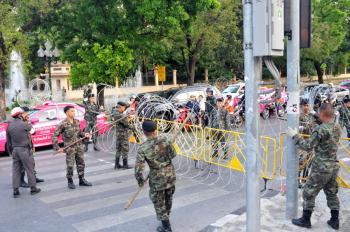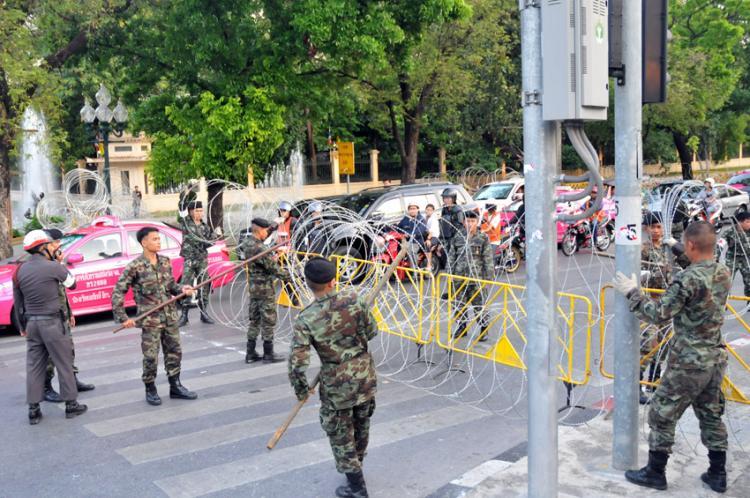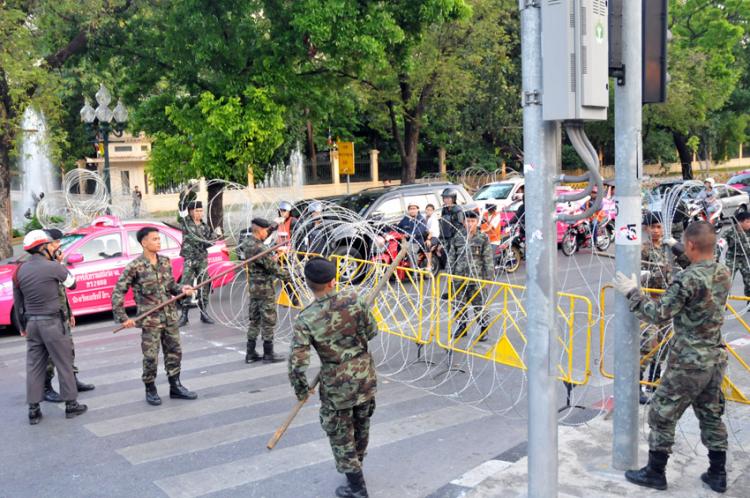Thai Tourism Seeks to Minimize Ecological Impact
Thailand’s tourism industry is shifting its focus from economic expansion to ecological minimization.

Thai soldiers removing road blocks to ease the traffic at Thanon Ratchawithi road on 23 March 2010 around 6 pm. Mingguo Sun/The Epoch Times
|Updated:



